Abhishek Goyal
Frequency-Guided Posterior Sampling for Diffusion-Based Image Restoration
Nov 22, 2024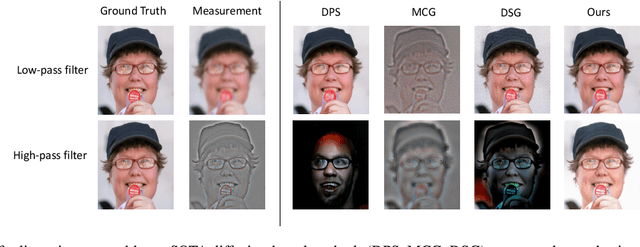
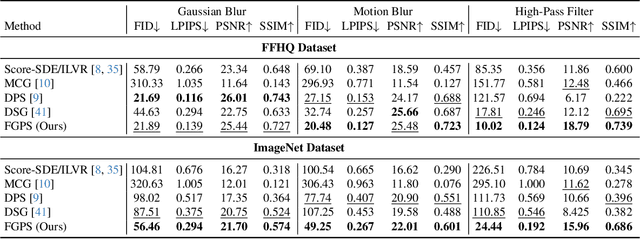
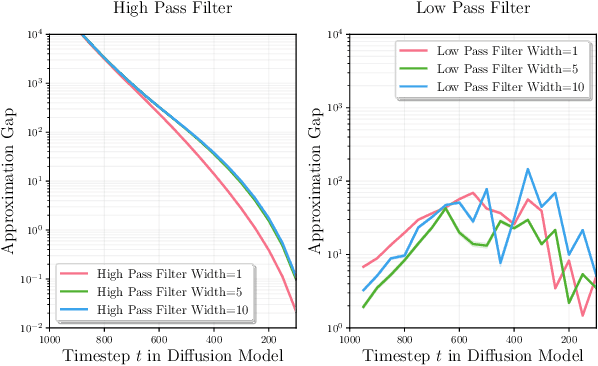
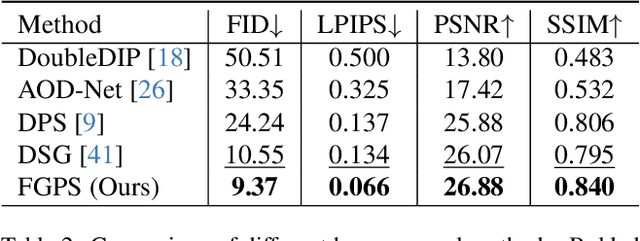
Abstract:Image restoration aims to recover high-quality images from degraded observations. When the degradation process is known, the recovery problem can be formulated as an inverse problem, and in a Bayesian context, the goal is to sample a clean reconstruction given the degraded observation. Recently, modern pretrained diffusion models have been used for image restoration by modifying their sampling procedure to account for the degradation process. However, these methods often rely on certain approximations that can lead to significant errors and compromised sample quality. In this paper, we provide the first rigorous analysis of this approximation error for linear inverse problems under distributional assumptions on the space of natural images, demonstrating cases where previous works can fail dramatically. Motivated by our theoretical insights, we propose a simple modification to existing diffusion-based restoration methods. Our approach introduces a time-varying low-pass filter in the frequency domain of the measurements, progressively incorporating higher frequencies during the restoration process. We develop an adaptive curriculum for this frequency schedule based on the underlying data distribution. Our method significantly improves performance on challenging image restoration tasks including motion deblurring and image dehazing.
Enhancing Retrieval in QA Systems with Derived Feature Association
Oct 02, 2024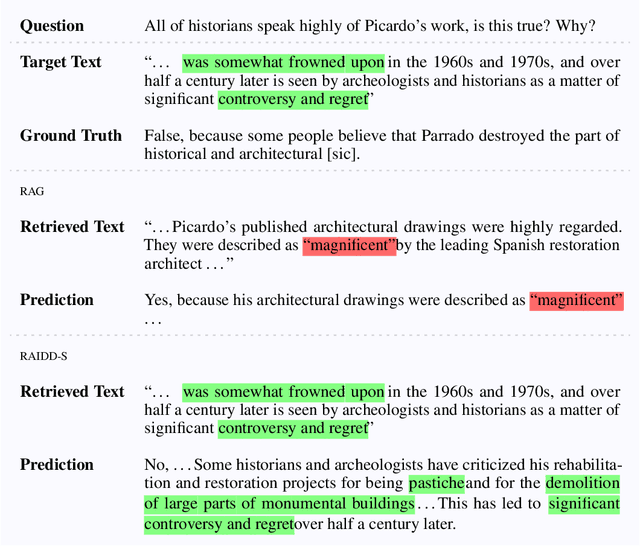
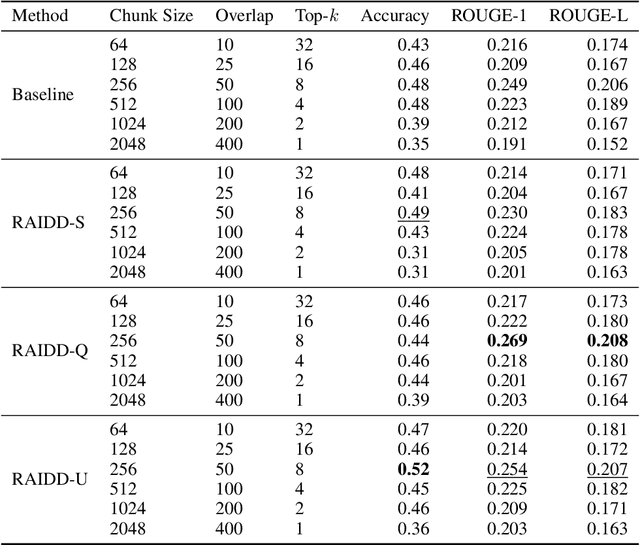
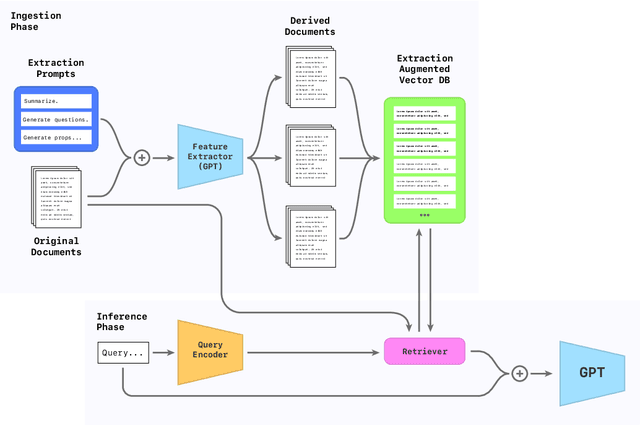
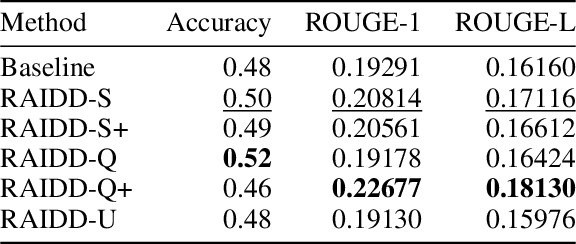
Abstract:Retrieval augmented generation (RAG) has become the standard in long context question answering (QA) systems. However, typical implementations of RAG rely on a rather naive retrieval mechanism, in which texts whose embeddings are most similar to that of the query are deemed most relevant. This has consequences in subjective QA tasks, where the most relevant text may not directly contain the answer. In this work, we propose a novel extension to RAG systems, which we call Retrieval from AI Derived Documents (RAIDD). RAIDD leverages the full power of the LLM in the retrieval process by deriving inferred features, such as summaries and example questions, from the documents at ingest. We demonstrate that this approach significantly improves the performance of RAG systems on long-context QA tasks.
 Add to Chrome
Add to Chrome Add to Firefox
Add to Firefox Add to Edge
Add to Edge